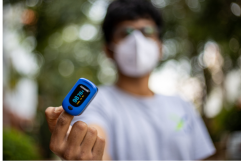
REACH-OUT: Caring for the Healthcare Workforce Post-COVID-19
This report, produced in partnership with the University of Leicester, the University of Nottingham, and UCL, presents the first six-monthly update on the REACH-OUT programme, outlining the rationale and methodology that will drive the work.




